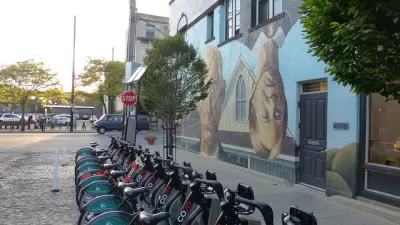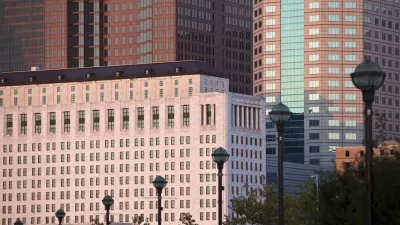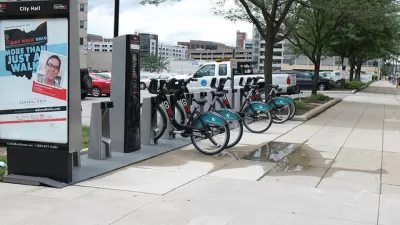The former program manager for Smart Columbus discusses the successes, challenges, and unexpected opportunities encountered by the city as it worked to integrate technology into city services and programs.

When Columbus won up to $50 million in grant funds through the Department of Transportation's Smart City Challenge program in 2016, the city "implemented a sophisticated operating system that handled complex data analytics; connected vehicle technology; a prenatal trip assistance program; kiosks that help residents plan trips; autonomous shuttles; a trip-planning app called Pivot; and a parking payment app." With the program having just concluded, Danielle McLean relates Smart Cities Dive's interview with Mandy K. Bishop, Columbus’ deputy director of public service and former Smart Columbus program manager. Bishop reflects on the challenges and opportunities presented by the program and how the city plans to continue the most successful parts of the program.
Bishop recounts the efforts the city made to "reach communities through multiple different media, including digital" but also more time-consuming outreach methods like door hangers and printed informational materials. During its implementation, the program "reduced greenhouse gas emissions estimated by about two and three-quarters percent," developed a public transit and mobile parking app, and created a broadband pilot program.
When looking to implement 'smart city' solutions, she recommends engaging with residents throughout the process, which "develops a level of trust" and provides a continual input of information from the community. In this way, Bishop says, "[y]ou end up with a product that actually solves the user challenge at the end."
Bishop says the initiative also identified new needs and opportunities for the future. "[Y]ou’re going to continue to see a leveraging of the engagement platforms that we built, we’re going to continue to see availability of the new mobility applications as well as infrastructure that we built including our connected vehicle environment. You’re going to continue seeing the city iterate and challenge itself to be bold."
FULL STORY: 6 questions with Smart Columbus on lessons since program's conclusion

Alabama: Trump Terminates Settlements for Black Communities Harmed By Raw Sewage
Trump deemed the landmark civil rights agreement “illegal DEI and environmental justice policy.”

Planetizen Federal Action Tracker
A weekly monitor of how Trump’s orders and actions are impacting planners and planning in America.

The 120 Year Old Tiny Home Villages That Sheltered San Francisco’s Earthquake Refugees
More than a century ago, San Francisco mobilized to house thousands of residents displaced by the 1906 earthquake. Could their strategy offer a model for the present?

In Both Crashes and Crime, Public Transportation is Far Safer than Driving
Contrary to popular assumptions, public transportation has far lower crash and crime rates than automobile travel. For safer communities, improve and encourage transit travel.

Report: Zoning Reforms Should Complement Nashville’s Ambitious Transit Plan
Without reform, restrictive zoning codes will limit the impact of the city’s planned transit expansion and could exclude some of the residents who depend on transit the most.

Judge Orders Release of Frozen IRA, IIJA Funding
The decision is a victory for environmental groups who charged that freezing funds for critical infrastructure and disaster response programs caused “real and irreparable harm” to communities.
Urban Design for Planners 1: Software Tools
This six-course series explores essential urban design concepts using open source software and equips planners with the tools they need to participate fully in the urban design process.
Planning for Universal Design
Learn the tools for implementing Universal Design in planning regulations.
Clanton & Associates, Inc.
Jessamine County Fiscal Court
Institute for Housing and Urban Development Studies (IHS)
City of Grandview
Harvard GSD Executive Education
Toledo-Lucas County Plan Commissions
Salt Lake City
NYU Wagner Graduate School of Public Service





























